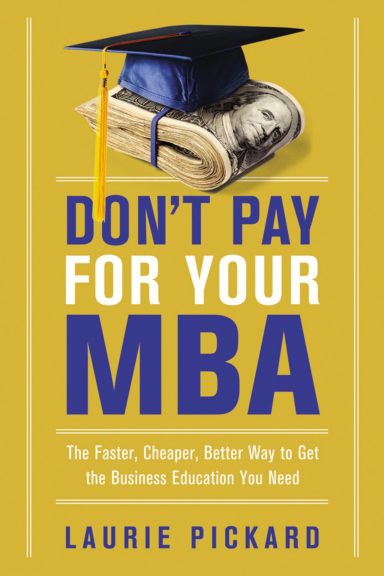How to invest in a no-pay way to get your MBA
Get the business education you need without spending thousands of dollars
Advertisement
Get the business education you need without spending thousands of dollars
 Book: Don’t pay for your MBA
Author: Laurie Pickard
Publisher: American Management Association
Price: $17.14, Kindle $8.99
WHO IT’S FOR: People interested in getting a high-end business education
MORE SPECIFICALLY: Those who want to learn everything an MBA teaches you without getting into a mountain of debt to do so
DOES IT BUST ANY MYTHS?: Yes, that you need to spend $50,000 or more to get an MBA, In fact, author Laurie Pickard found that some of the world most prestigious business schools offer MOOCs (massive online open courses for low or even no cost.
WHO BENEFITS THE MOST FROM THE BOOK: Self-starters, career changes, budding entrepreneurs and anyone else interested in keeping on top of their business education.
Book: Don’t pay for your MBA
Author: Laurie Pickard
Publisher: American Management Association
Price: $17.14, Kindle $8.99
WHO IT’S FOR: People interested in getting a high-end business education
MORE SPECIFICALLY: Those who want to learn everything an MBA teaches you without getting into a mountain of debt to do so
DOES IT BUST ANY MYTHS?: Yes, that you need to spend $50,000 or more to get an MBA, In fact, author Laurie Pickard found that some of the world most prestigious business schools offer MOOCs (massive online open courses for low or even no cost.
WHO BENEFITS THE MOST FROM THE BOOK: Self-starters, career changes, budding entrepreneurs and anyone else interested in keeping on top of their business education.
READ: Why beating the stock market is a fruitless game
Share this article Share on Facebook Share on Twitter Share on Linkedin Share on Reddit Share on Email